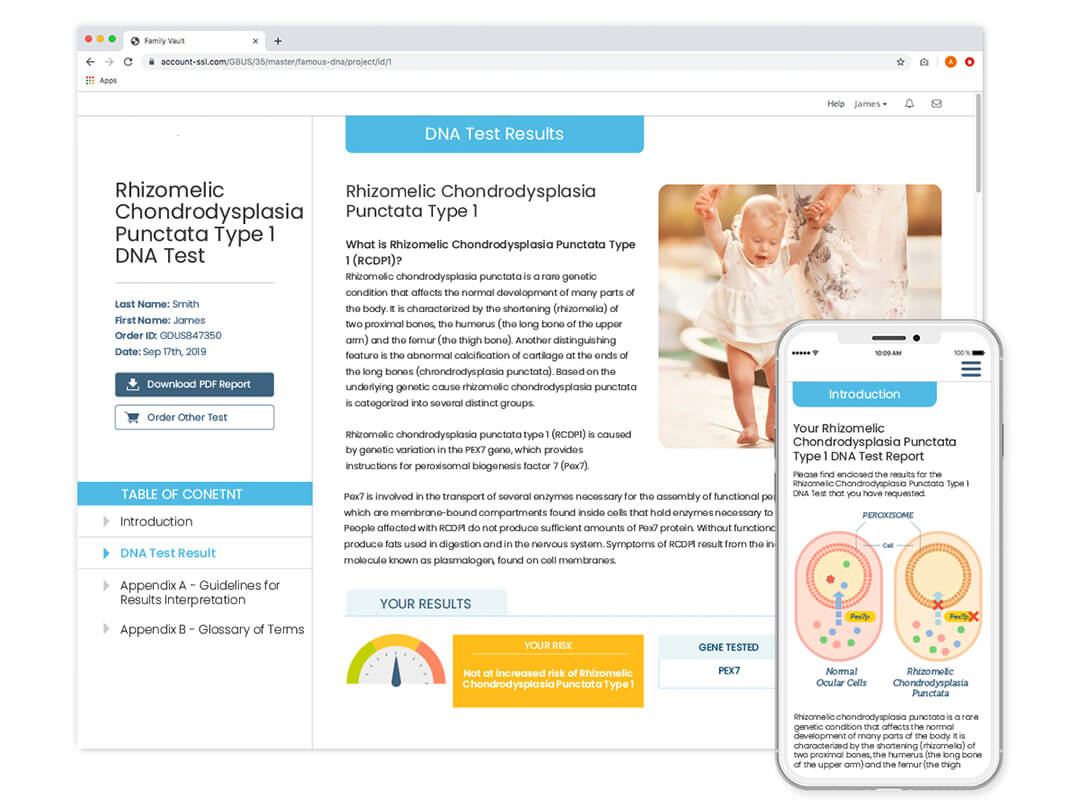Rhizomelic Chondrodysplasia Punctata Type 1 DNA Test
Are you a genetic carrier for rhizomelic chondrodysplasia punctata? Find out with this DNA Test.
- Detects the most common PEX7 gene variant that causes rhizomelic chondrodysplasia punctata type 1
- Carrier screening test intended for couples who are planning to become pregnant
- 100% private and confidential online results
Already have DNA markers? Sign in and upload your data to view results.
Need to take the DNA Test? Order our easy-to-use swab kit.





